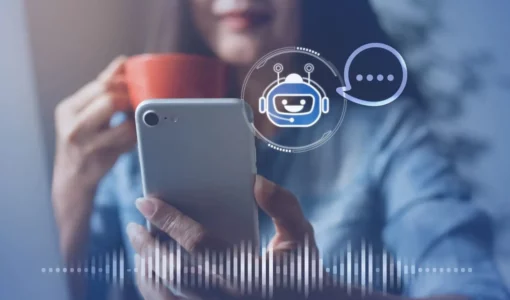
There may also be some cases where they give out incorrect information or advice because they don’t have all the necessary information. Some of these errors can be very serious and dangerous, such as giving wrong medication instructions or suggesting that the patient developed a new condition that does not exist. In this article, you can read through metadialog.com the pros and cons of healthcare chatbots to provide a balanced perspective on how they can be used in practice today. Healthcare bots help in automating all the repetitive, and lower-level tasks of the medical representatives. While bots handle simple tasks seamlessly, healthcare professionals can focus more on complex tasks effectively.
- Using AI, chatbots can analyze patient data, like medical history and symptoms.
- Businesses will need to look beyond technology when creating futuristic healthcare chatbots.
- Botpress supports developers through a framework that allows developers to access and build on common features and methodologies, speeding development time and resulting in better coding standards.
- People do not want to engage in waiting lines or sit by the phone looking out for a response from medical professionals.
- While many patients appreciate the help of a human assistant, many others prefer to hold their information private.
- Learn what patient relationship management is, its benefits, and how to pick the right PRM system for your healthcare organization.
All this information is extracted from the chatbots and saved in the institute’s medical record-keeping system for further use. We can develop chatbots for the healthcare industry with the highest standards of security. Our specialist team utilizes deep analytics and user behavior insights to create the right solution.
The future of chatbots in healthcare
It can even assist your doctors in answering questions and prescribing the necessary drugs, dosage, and refills in real-time more efficiently. Botpress supports developers through a framework that allows developers to access and build on common features and methodologies, speeding development time and resulting in better coding standards. Frameworks also act as middleware allowing developers to connect to many important related services through a single API call. Chatbots collect patient information, name, birthday, contact information, current doctor, last visit to the clinic, and prescription information.
- Turn it on today and empower your team to realize the benefits of happier patients and a more efficient, effective healthcare staff—without having to hire a specialist.
- Bot-building companies are typically software development vendors that employ AI technology to help businesses deploy their own chatbots across a platform.
- A healthcare chatbot can link patients and trials according to their health data and demographics, boosting clinical trial participation and accelerating research.
- Medical virtual assistants provide your patients with an easy gateway to find appropriate information about insurance services.
- One of the most important reasons behind healthcare providers’ using chatbots is that they help in acquiring patient feedback.
- Healthcare chatbots can help patients avoid unnecessary lab tests and other costly treatments.
From the patient’s perspective, various chatbots have been designed for symptom screening and self-diagnosis. The ability of patients to be directed to urgent referral pathways through early warning signs has been a promising market. Decreased wait times in accessing health care services have been found to correlate with improved patient outcomes and satisfaction [59-61]. The automated chatbot, Quro (Quro Medical, Inc), provides presynopsis based on symptoms and history to predict user conditions (average precision approximately 0.82) without a form-based data entry system [25]. In addition to diagnosis, Buoy Health (Buoy Health, Inc) assists users in identifying the cause of their illness and provides medical advice [26]. Another chatbot designed by Harshitha et al [27] uses dialog flow to provide an initial analysis of breast cancer symptoms.
IT Staff Augmentation vs Outsourcing – Which is Best for Your Business?
As an important component of proactive healthcare services, chatbots are already used in hospitals, pharmacies, laboratories, and even care facilities. The ubiquitous use of smartphones, IoT, telehealth, and other related technologies fosters the market’s expansion. Market Research Future found that the medical chatbot market in 2022 was valued at $250.9 million and will increase to $768.1 million by 2028, demonstrating a sustained growth rate of 19.8% in a year.
How AI will impact healthcare?
It can increase productivity and the efficiency of care delivery and allow healthcare systems to provide more and better care to more people. AI can help improve the experience of healthcare practitioners, enabling them to spend more time in direct patient care and reducing burnout.
Vivobot (HopeLab, Inc) provides cognitive and behavioral interventions to deliver positive psychology skills and promote well-being. This psychiatric counseling chatbot was effective in engaging users and reducing anxiety in young adults after cancer treatment [40]. The limitation to the abovementioned studies was that most participants were young adults, most likely because of the platform on which the chatbots were available. In addition, longer follow-up periods with larger and more diverse sample sizes are needed for future studies.
How Chatbots are Revolutionizing Healthcare Diagnosis
This would save physical resources, manpower, money and effort while accomplishing screening efficiently. The chatbots can make recommendations for care options once the users enter their symptoms. Assessing the effectiveness of ChatGPT in healthcare practices requires monitoring key metrics, including patient satisfaction, treatment success rates and the efficiency of care delivery. ChatGPT’s capabilities can significantly enhance patient care and triage processes, leading to more efficient healthcare systems and better patient outcomes. As ChatGPT continues to learn from an ever-expanding pool of data, its potential applications within the healthcare industry have become increasingly promising.
As chatbots are connected to patient data, there is a risk that sensitive patient information could be accessed by unauthorized individuals. This could lead to serious implications for both the patient and the healthcare provider. Everyone wants a safe outlet to express their innermost fears and troubles and Woebot provides just that—a mental health ally. It uses natural language processing to engage its users in positive and understanding conversations from anywhere at any time. They gather them by communicating with different people, much like humans do.
The Benefits and Risks of Using Chatbots in Healthcare Diagnosis
Successful implementation of this software relies on careful planning and setting realistic expectations. One such versatile chatbot platform is called BotPenguin, which requires absolutely no code at all to build your first chatbot. This provides patients with an easy gateway to find relevant information and helps them avoid repetitive calls to healthcare providers. Every task a healthcare provider performs, and every goal they set is an effort to provide the best services to their patients. This is one of the reasons why medical assistants are not shying away from implementing a chatbot to ease their job.

And if you ever forget when to take your meds or go to an appointment, these chatbots can send you reminders too. So, all in all, healthcare virtual assistant chatbots are there to make managing your healthcare as easy as possible. The primary motivation for any healthcare provider’s actions is, of course, the patients themselves. Medical assistants are not hesitant to use chatbots in the workplace for this and other reasons. While chatbots can never fully replace human doctors, they can serve as primary healthcare consultants and assist individuals with their everyday health concerns. This will allow doctors and healthcare professionals to focus on more complex tasks while chatbots handle lower-level tasks.
Healthcare Chatbots: How GSK, Univer & Zambia MOH are enhancing patient care
The healthcare industry is undergoing a revolutionary change with the introduction of chatbot technology. Chatbots are computer programs designed to simulate conversation with humans, and are becoming increasingly popular in the healthcare industry. By automating various tasks, such as diagnosis and treatment, chatbots are helping to improve healthcare services while reducing costs.

Consequently, balancing these opposing aspects is essential to promote benefits and reduce harm to the health care system and society. Hesitancy from physicians and poor adoption by patients is a major barrier to overcome, which could be explained by many of the factors discussed in this section. A cross-sectional web-based survey of 100 practicing physicians gathered the perceptions of chatbots in health care [6]. Although a wide variety of beneficial aspects were reported (ie, management of health and administration), an equal number of concerns were present. If the limitations of chatbots are better understood and mitigated, the fears of adopting this technology in health care may slowly subside.
Patient treatment feedback
Harnessing AI capabilities, chatbots can provide thorough aid and counsel to patients, as well as follow-up consultations and treatments. Chatbots can be used to streamline and make healthcare services more efficient. Chatbots specially designed for mental health are invaluable for those struggling with depression, anxiety, and other issues. They provide a secure outlet for communication and lessen feelings of loneliness. AI chatbots are aiding medical research by collecting and analyzing large amounts of patient data, leading to breakthroughs and treatments.
- These solutions can also be programmed to identify whether a situation is an emergency.
- With the use of sentiment analysis, a well-designed healthcare chatbot with natural language processing (NLP) can comprehend user intent.
- Customers can ask their questions, receive answers, and get what they need without having to wait on hold.
- A lifelong communicator, this Tennessee native got his start in broadcast news before branching out into public media, corporate, communications, digital advertising, and integrated marketing.
- There are chatbots based on different media, including Facebook Messenger, Whatsapp, and even SMS.
- They can securely store and manage all that sensitive patient information, reducing the risk of data breaches and other security threats.
How do robots affect healthcare?
Healing Better With Technology
Medical robots are making the healing process faster, safer, and smarter, for caretakers and patients alike. For nurses and healthcare teams, medical robots alleviate stress and staffing shortages. For patients, robots offer companionship, mobility, and personalized care.

